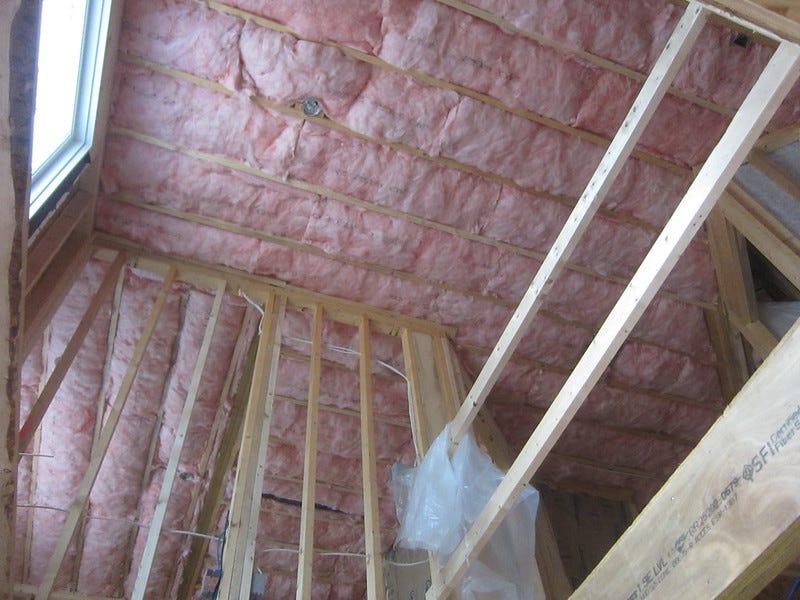Americans' thoughts turn increasingly to insulation
Soaring energy prices have spurred new business models for weatherizing.

(A native of England, Matthew Diebel is a veteran journalist who has worked at NBC News, Time, USA Today and News Corp., among other organizations. Having spent his childhood next to one of the world's fastest bodies of water, he is particularly interested in tidal energy.)
Insulated by some of the lowest oil and gas prices in the Western world, Americans — unlike their European counterparts — have been somewhat lazy in making sure their homes are properly weatherized. That chilly draft? “Hey, it’s going to cost much more to fix than the money we’re spending filling our oil tank” tends to be the norm.
Now, however, as fossil fuel and electricity prices soar, more and more homeowners are thinking about investing in insulation and other measures, such as heat and cooling pumps, to bring down their energy bills.
The incentives are compelling. For instance, the U.S. Energy Information Administration (EIA) has forecast that nationwide heating oil expenditures will be 43% higher this winter than the last. And in California, Pacific Gas & Electric (PCG) has warned customers of much larger bills as it passes on a 90% jump in natural gas prices. And that was before the war in Ukraine.
However, many hesitate, especially since, unlike a flashy new kitchen or beautiful bathrooms, insulation is unlikely to increase a home’s value. And the costs can be considerable, with the outlays likely to be in the mid-five figures to properly weatherize an average home.
Some states, such as Connecticut, offer incentives and rebates to bring down the costs, but the fixes tend to be piecemeal. But now, reports Bloomberg, several start-ups are beginning to address the high-cost-of-entry problem with new installation and financing models. For example, a New York City-based company called Sealed covers the upfront investment for insulation and heat pumps and then charges homeowners a monthly fee based on energy savings, something similar to plans used by many solar panel companies. “If you don’t save energy, we don’t make money,” said Lauren Salz, Sealed’s co-founder and CEO.
Meanwhile, another New York company, BlocPower, offers a similar financing program that enables apartment building owners to replace boilers with heat pumps and make other energy efficiency upgrades.
Look for this sector to heat up.
